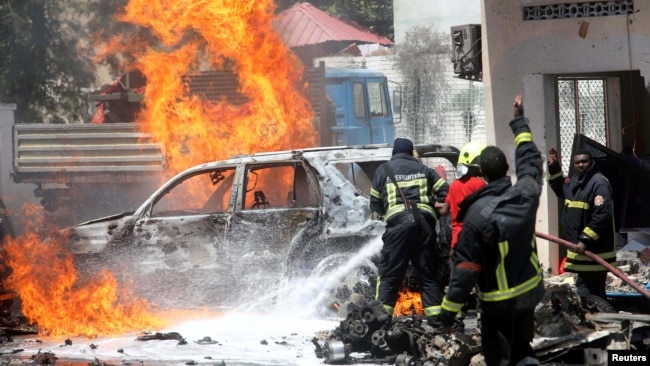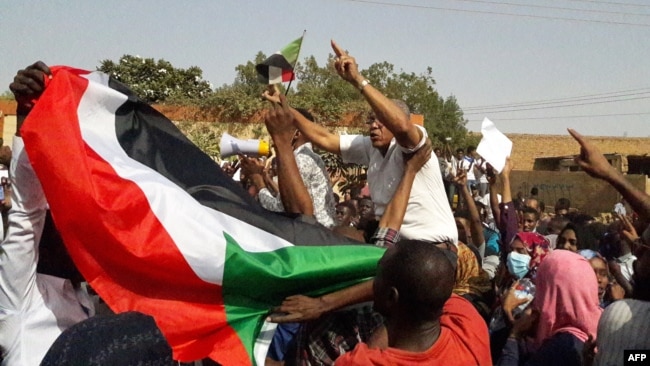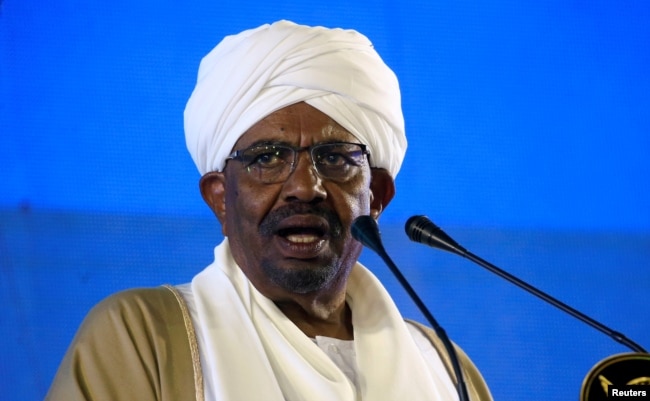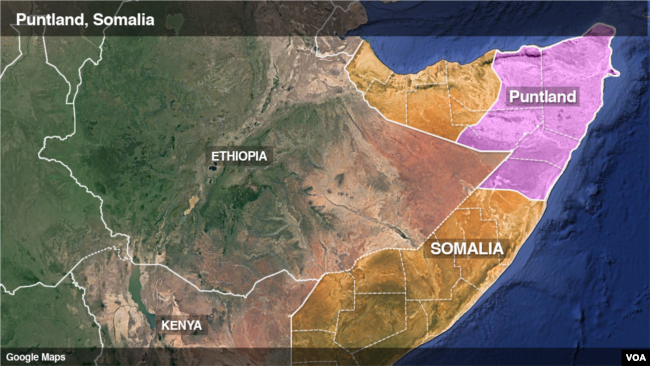As protesters demonstrated in parts of the Sudanese capital of Khartoum on Thursday, President Omar al-Bashir visited the northeastern state of Kassala, announcing that the border between neighboring Eritrea and Sudan would be reopened, after a year of closure.
Al-Bashir said that he greets the people of Eritrea and its president and he proclaims that the border between the two countries is now open because they are our dear brethren, despite the fact that politics has caused division among us.
Al-Bashir went on to tell supporters that it was the "duty of the government to have a dialogue with young people" and that the government must "educate them and provide for their needs."
He said that there will be no change of government or of the president via Facebook or WhatsApp, and vows that change will only take place at the ballot box.
Call for more protests
Sudan's Association of Trade Unions called for another day of protest against the government Thursday, prompting a number of demonstrations in Khartoum and other parts of the country. The group's spokesman, Mohammed Asbat, told Alhurra TV that the government's appeal for dialogue with young people and the release of prisoners is not sincere.
Asbat said that the government's message that it is releasing prisoners and undertaking dialogue is intended for the consumption of outside countries who have been warning it not to arrest peaceful protesters and to release them.
Opposition leader Miriam Sadeq al-Mahdi, who was briefly detained by Sudanese security forces Wednesday, told Alhurra TV that the government's efforts at dialogue "have failed," and that in the face of a "growing revolution," it has resorted to "arresting young people."
Al-Mahdi said that President Bashir's round of visits to far-flung provinces does not reflect any desire on the part of the Sudanese people that he remain in power and that it is normal for dictators to draw their supporters around them to make it look like they are popular.
Official meets with young protesters
Sudan's intelligence chief, General Salah Gosh, has met with a number of young protesters who have been jailed for taking part in demonstrations, but opposition leaders said that he and the government have released "very few prisoners," out of the several thousand they said are being detained.
Gosh insisted in a speech to military cadets that outside forces are trying to create chaos inside the country.
He said that there are forces trying to create chaos in the country and cause economic hardship for its people, but that (the security forces) will combat them with force and determination and restore order.
Al-Arabiya TV reports that Gosh asserted that "leftist parties are trying to overthrow the government," and state that a number of armies or militia groups are "waiting for Khartoum to be engulfed in chaos, in order to march on the capital and seize power."
*******************************************************************************
Al-Shabab Battles IS in Northeastern Somalia

The al-Shabab militant group has scaled up its attacks against pro-Islamic State fighters in the northeastern mountainous Somali region of Bari, experts say.
Intelligence and security officials say al-Shabab has seized two locations from pro-IS militants this week. One area is called El-Miraale, a water point that has been the focal point of clashes. The second village seized by al-Shabab is called Shebaab, south of the town of Qandala, according to sources.
Pro-IS militants have retreated farther into the highlands, but experts say the fighting is not over.
Abdi Hassan Hussein, the former intelligence chief of Puntland, has been monitoring the two side's latest clashes.
"They are fighting over the control of the mountains, which has been a base for Daesh," he said, using another term for Islamic State.
December al-Shabab attack
Al-Shabab attacked IS in December after smuggling dozens of its militia members into the area, a move described as audacious attempt to reach IS hideouts.
Hussein says al-Shabab lost the first round of the mid-December battle and lost men but regrouped and launched a second-round offensive earlier this week. He says the key El-Miraale water point is now under al-Shabab's control.
“Al-Shabab managed to take over the area, they also spread to Dhadaar village,” he said.
Both groups extorting locals
The two groups have not only been fighting over control of territory but have also been competing in collecting extortion money from Somali businesses.
Al-Shabab has been collecting systematic taxes and extortions from Somalia business, but IS started to emulate the tactic late last year. IS demanded payments from businesses in Puntland as well as in Mogadishu. When businesses resisted, IS began targeting businessmen, killing at least half a dozen people.
Al-Shabab saw this as a direct challenge and vowed to destroy the IS group.
Al-Shabab spokesman Ali Mohamoud Dhere described IS as a “disease” and a “cancer.” In a December speech, he said al-Shabab fighters have orders to “uproot” IS militants in Somalia.
Security threats
Both groups endanger Somalia.
Hussein Sheikh Ali, the former national security adviser to President Mohamed Abdullahi Farmajo, said the current situation indicates stalemate.
“Al-Shabab is more powerful, but IS also showed they are not a pushover. Indeed, it's IS that provoked al-Shabab and tried to conduct activities in the south,” he said, referring to IS attempts to extort businesses in the south.
Militarily, al-Shabab has severely purged the group’s sympathizers and fans in the southern regions of Somalia. In January, al-Shabab executed three men, including two foreign jihadists who were accused of supporting IS. The men reportedly denied association with IS.
The Somali national killed by al-Shabab, Yahye Haji File, also known as Abu Zakariye, was an official who fell out with al-Shabab over the killing of a pro-Islamic militant commander. He left al-Shabab after the killing of associate Sheikh Bashir Abu Numan, who was an al-Shabab commander-turned-IS assassinated by al-Shabab in 2015 just weeks after IS split from al-Shabab.
Civilians pay highest price
Ali says if al-Shabab defeats IS, it will be “one less problem” for Somalia.
“If al-Shabab wins, it will mean one less problem for the federal government and regions. But if Daesh continues to exist or strengthen, the problem will double in many fronts,” he said.
Hussein said the fighting could be prolonged in the highlands, specially if IS opts for a guerrilla war against al-Shabab. He added that civilians living in battle areas endure the most casualties.
Recent days have brought reports of both sides attempting to compete for the locals' support. While IS encouraged the locals to be hostile to the new armed visitors, al-Shabab sought their cooperation to inform on IS whereabouts.
But according to local reports, the public is apprehensive, especially as there are no visible signs to distinguish who is al-Shabab and who is IS, a tricky situation that endangers their safety.
Hussein says the Somali government and Puntland regional administration have a responsibility to protect those civilians.
“There is a lot of fear facing the people living in these areas,” he said. “The arrival of al-Shabab is a new, additional threat to them.”
He said the villagers expect support from the federal government and Puntland. But it is unclear how they will get this support as the area sees increased tension.
US airstrikes
Meanwhile, the United States military reported carrying out its ninth strike against al-Shabab militants this year. The strike Wednesday in Shabeley village of Hiran region killed 24 al-Shabab fighters, according to Africa Command.
The strikes included a Dec. 19 bombing of al-Shabab militia traveling on a large truck shortly after returning from attacking a Somali military base. Fifty-two militants were killed in the strike. Also, four of the strikes took place in three consecutive days between Jan. 6 and 8. Last year, Africa Command carried out 47 strikes, a record in Somalia.








